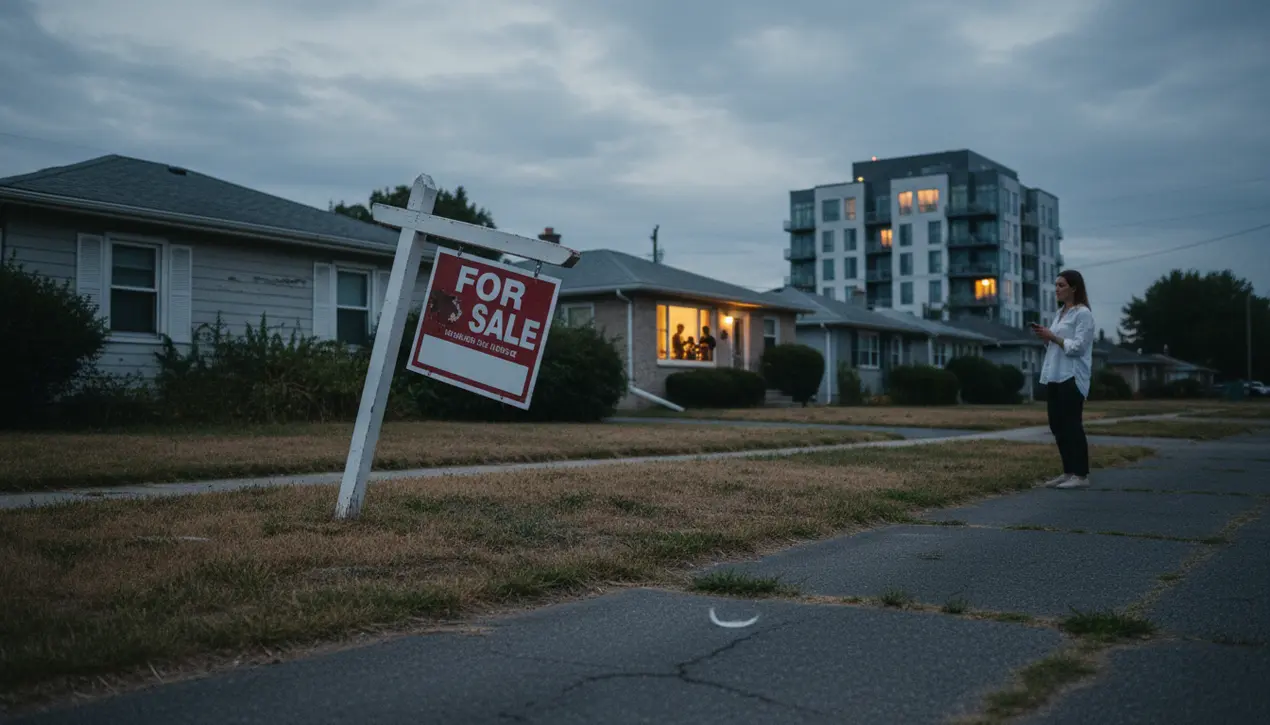- News
- real-estate
- The Case Against the American Dream: Why Homeownership Isn't All It's Cracked Up To Be

Otherreal estateHousing Market Trends
The Case Against the American Dream: Why Homeownership Isn't All It's Cracked Up To Be
ET
Ethan Brown
2 hours ago7 min read2 comments
A provocative new argument is challenging a cornerstone of American life: the sanctity of homeownership. Jerusalem Demsas, editor-in-chief of The Argument, asserts that the cultural and financial obsession with owning a house is fundamentally overrated.This stance directly confronts the 70 percent of Americans who still view a deed as the ultimate symbol of the American dream. Demsas, a contented renter, presents a powerful case for the financial prudence and lifestyle benefits of renting, arguing that the conventional wisdom is built on a shaky foundation of myth and historical bias.'I love the freedom to relocate on my own terms,' Demsas states, championing the flexibility renters enjoy. 'And I deeply appreciate not bearing the burden of a leaking roof or a broken refrigerator.' This perspective upends the traditional narrative, heavily promoted by financial gurus like Robert Kiyosaki, that positions real estate as a foolproof, forced savings plan. Demsas systematically deconstructs this notion, highlighting that a house is a massive, illiquid, and risky asset.The first myth she tackles is the 'forced savings' argument. While mortgage payments build equity, they ignore the colossal hidden costs of ownership—property taxes, insurance, and unpredictable maintenance that can devastate a family's finances in an instant.The second myth is the promise of a stellar return on investment. Demsas counters that this is 'not guaranteed at all,' pointing out that life events like job loss or a medical crisis can force a sale at a market bottom, turning a potential profit into a devastating loss.The opportunity cost is another critical factor. The capital tied up in a down payment, closing costs, and higher monthly housing bills could instead be invested in more liquid and diversified assets, like low-cost index funds, which have historically delivered strong returns.Demsas also explores the origins of this deep-seated belief, tracing it to the early 20th-century push for an 'ownership society' that legally and culturally equated property ownership with being a 'good citizen,' often in contrast to immigrant renters. Yet, this social calculus is also changing.As a renter, Demsas notes she can afford to live in a vibrant, well-connected community closer to her social and professional networks—a luxury often forfeited by buyers priced out of urban centers. Ultimately, she proposes a radical reframing of the American dream.It shouldn't be about the deed itself, but about the economic freedom it purports to provide. True security, Demsas contends, isn't found in a highly leveraged, illiquid asset; it's found in financial resilience, access to opportunity, and the flexibility to navigate life's uncertainties. For millennials, Gen Z, and many others, that freedom may be better served by the lower overhead and strategic mobility of renting.
#homeownership
#renting
#personal finance
#American dream
#real estate investment
#editorial picks news
Stay Informed. Act Smarter.
Get weekly highlights, major headlines, and expert insights — then put your knowledge to work in our live prediction markets.
Related News
Comments
Loading comments...
© 2025 Outpoll Service LTD. All rights reserved.